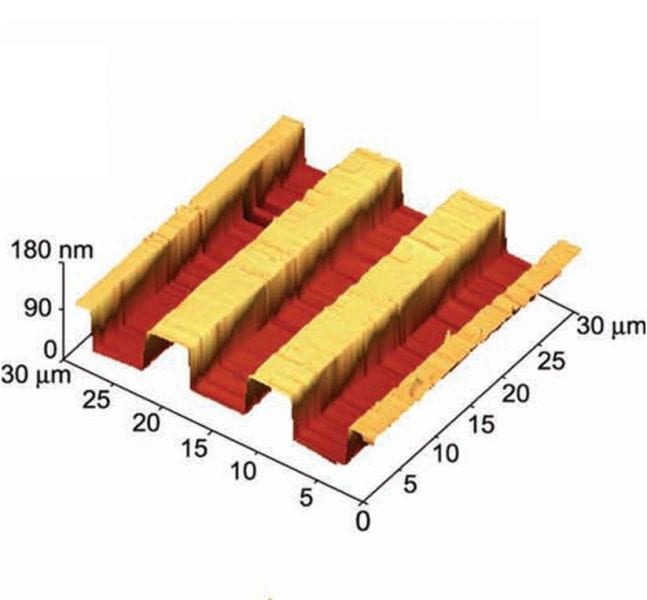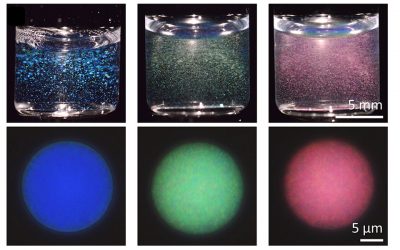 Wavelength tunability makes lasers ideal sources for high-sensitivity and high-resolution spectroscopy. Though still limited by optical-pumping, the development of hybrid devices exploiting inorganic excitation, coupled to patterned active organics, allow to obtain coherent light from the ultraviolet (UV) to the near infrared, thus overcoming some limits of inorganic sources concerning the emission wavelengths and fully exploiting the broad tunability range of polymer. Different methods have been proposed for tuning the emission of organic lasers, though within generally limited ranges and with scarce possibility for on-chip integration.
Wavelength tunability makes lasers ideal sources for high-sensitivity and high-resolution spectroscopy. Though still limited by optical-pumping, the development of hybrid devices exploiting inorganic excitation, coupled to patterned active organics, allow to obtain coherent light from the ultraviolet (UV) to the near infrared, thus overcoming some limits of inorganic sources concerning the emission wavelengths and fully exploiting the broad tunability range of polymer. Different methods have been proposed for tuning the emission of organic lasers, though within generally limited ranges and with scarce possibility for on-chip integration.
Andrea Camposeo, Dario Pisignano and co-workers (National Nanotechnology Laboratory, Italy) report on an organic distributed feedback laser tunable by DC electric fields, by embedding a thin layer of nonlinear optical chromophores in the device architecture and exploiting the DC quadratic electro-optic Kerr effect. The third-order nonlinearity allows to reversibly tune the amplified spontaneous emission of a conjugated polymer by 30 nm, and the wavelength of distributed feedback organic lasers by 17 nm, with a tunability coefficient of 0.17 nm/V. This method provides a mean for the continuous tunability of organic and hybrid lasers during operation without complex fabrication processes and without movable parts, therefore favouring their use as disposable photon sources for on-chip spectroscopy.
The third-order nonlinearity allows to reversibly tune the amplified spontaneous emission of a conjugated polymer by 30 nm, and the wavelength of distributed feedback organic lasers by 17 nm, with a tunability coefficient of 0.17 nm/V. This method provides a mean for the continuous tunability of organic and hybrid lasers during operation without complex fabrication processes and without movable parts, therefore favouring their use as disposable photon sources for on-chip spectroscopy.
The research was reported in Advanced Optical Materials, a new section in Advanced Materials dedicated to breakthrough discoveries and fundamental research in photonics, plasmonics, metamaterials, and more, covering all aspects of light-matter interactions. To get Advanced Optical Materials email alerts click here.

















